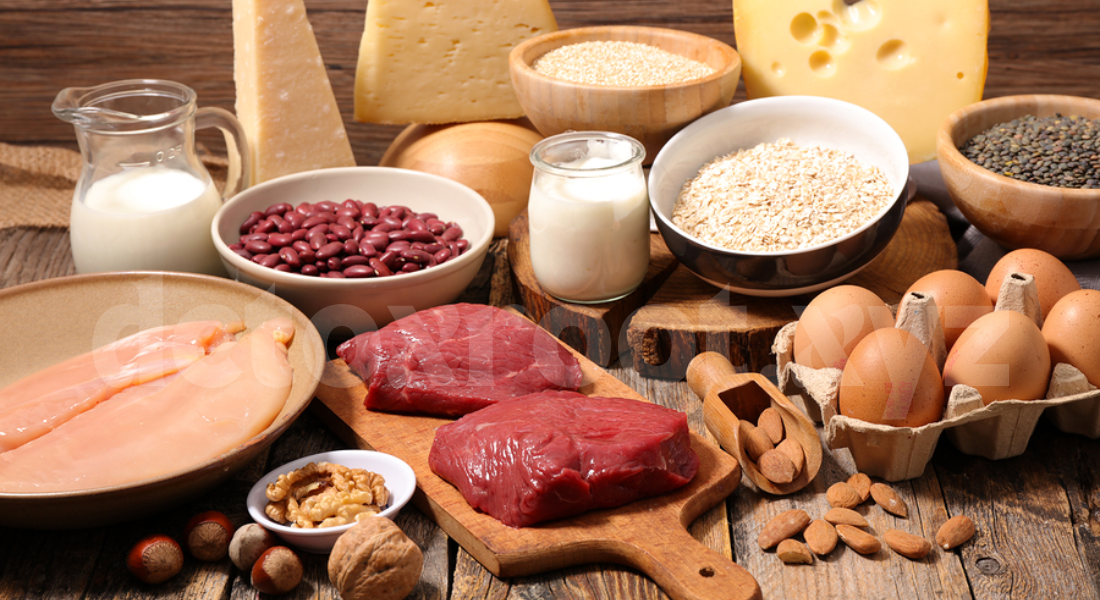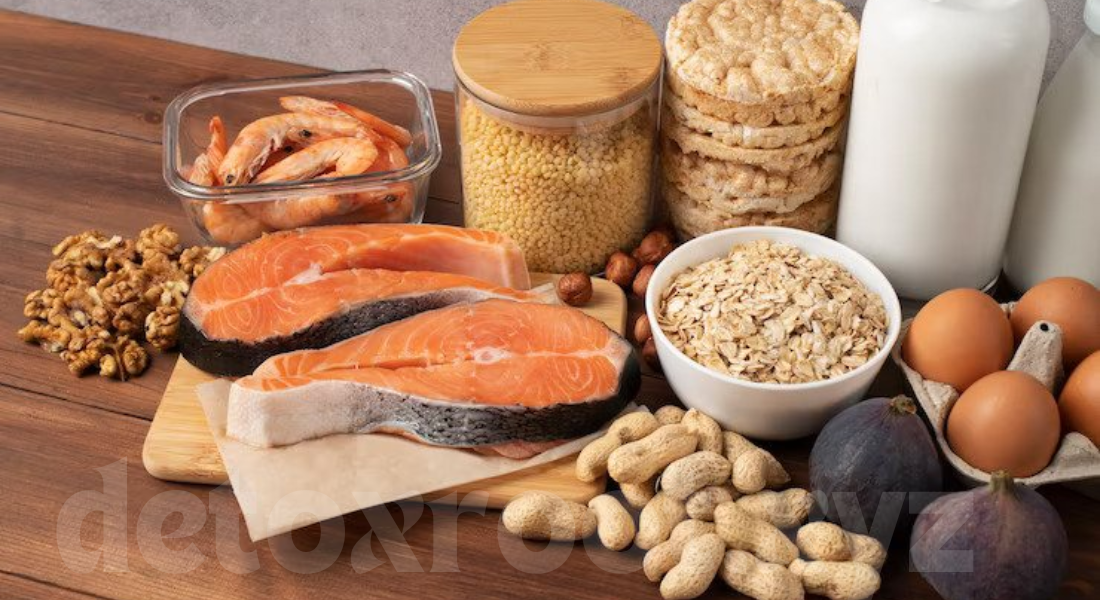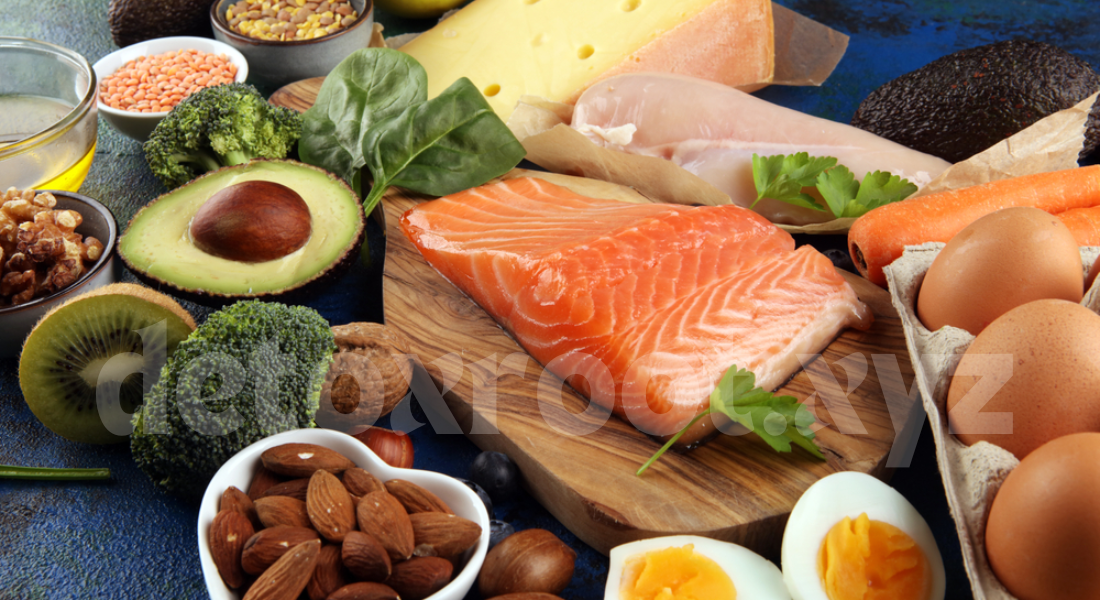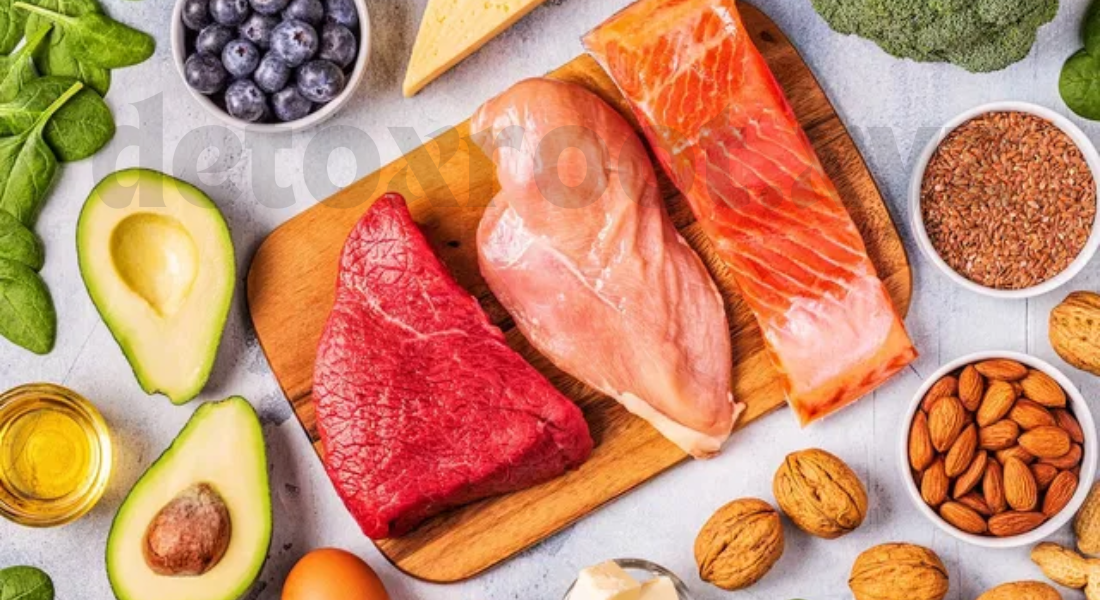When it comes to maintaining a healthy diet, protein is one of the most important nutrients. It’s essential for muscle building, cell repair, immune function, and overall body performance. Proteins are made up of amino acids, which are the building blocks of body tissues, and they play a central role in every cell and process in the body. The rise in interest around fitness, weight loss, and health optimization has led many to seek out high-protein foods as an effective way to meet their health goals. Whether you’re aiming to lose weight, build muscle, enhance athletic performance, or simply improve your overall health. Incorporating high-protein foods into your diet can make a significant difference.
Protein is not only crucial for repairing muscles after exercise, but it also boosts metabolism, helps regulate hunger, and supports immune health. In this article, we will explore some of the best high-protein foods available. Why they are beneficial, and how you can easily incorporate them into your daily meals to ensure you’re getting the protein you need to optimize health and performance. From animal-based options like lean meats to plant-based sources like legumes and quinoa, there are plenty of ways to add protein to your diet that suit different preferences and dietary needs.
Why Protein Is So Important
Before diving into specific high-protein foods, it’s important to understand why protein is such a vital part of our nutrition. Protein is made up of amino acids, which are the building blocks of the body’s tissues. These amino acids play a crucial role in the repair and growth of muscles, as well as the formation of enzymes, hormones, and immune cells. Protein helps with maintaining and rebuilding tissues in the body, from muscle fibers to skin and organs. This makes it especially important for those recovering from injuries, engaging in physical activity, or undergoing any sort of physical stress.
For individuals who exercise regularly, increasing protein intake can significantly enhance muscle recovery and promote muscle growth. Protein is also vital for improving metabolism, as it requires more energy to digest compared to fats and carbohydrates, leading to increased calorie burn. This makes high-protein foods beneficial for anyone looking to boost their metabolism and burn fat more efficiently. Additionally, protein plays a key role in regulating hunger by increasing feelings of fullness and satiety. This can aid in weight management and control, helping you resist the urge to overeat or indulge in unhealthy snacks.
Ensuring an adequate protein intake is also crucial for maintaining a healthy immune system. Many immune cells, such as antibodies, are made from protein, and a protein-rich diet can help strengthen your body’s defenses against illness. For anyone looking to improve their body composition, performance in physical activities, or overall health, ensuring that you get enough protein each day is essential. By incorporating high-protein foods into your meals, you can support your muscle mass, boost your metabolism, and promote overall health and well-being.

Best High Protein Foods to Include in Your Diet
Now that we understand the importance of protein, let’s dive into the top high-protein foods that you should consider adding to your diet. These options will not only meet your protein needs but also provide other essential vitamins, minerals, and nutrients for optimal health. Whether you’re looking to build muscle, improve metabolism, manage weight, or enhance overall well-being, incorporating high-protein foods into your diet is a great step toward achieving your health and fitness goals. High-protein foods are especially beneficial for those engaging in regular exercise, as they help with muscle repair and growth, improve energy levels, and support a strong immune system.
These protein-rich foods come in both animal and plant-based options, ensuring that everyone can find a suitable source of protein based on their dietary preferences, lifestyle, and any food restrictions they may have. Whether you follow a vegan, vegetarian, or omnivorous diet, there are plenty of high-protein foods to choose from, so you can easily incorporate them into your daily meals.
1. Eggs: A Complete Protein Source
Eggs are one of the most nutrient-dense foods available. A large egg contains around 6 grams of protein and provides all nine essential amino acids, making it a complete protein source. This makes eggs an excellent choice for muscle repair, body function, and overall health. The protein in eggs helps repair tissues, support immune function, and build muscle mass, making them a great addition to a post-workout meal.
In addition to protein, eggs are rich in vitamins such as B12, D, and choline, which support brain health, metabolism, and fat processing. The best part about eggs is their versatility—they can be prepared in numerous ways, from scrambled eggs to omelets and hard-boiled snacks. Eggs are also quick to prepare, making them a convenient protein option for busy mornings or meal prepping.
2. Chicken Breast: Lean and Packed with Protein
Chicken breast is another high-protein food that is widely popular among fitness enthusiasts and health-conscious individuals. A 3-ounce serving of skinless chicken breast contains about 26 grams of protein and very little fat, making it one of the leanest protein sources available. It’s also an excellent source of B vitamins, particularly niacin and vitamin B6, which are crucial for energy production, metabolism, and proper nervous system function.
For those who are looking to build muscle, lose fat, or maintain a lean physique, chicken breast is an ideal protein source. It provides a large amount of protein with minimal calories. Chicken breast can be grilled, baked, or added to salads, making it a versatile and healthy protein option.
3. Greek Yogurt: A Protein-Packed Dairy Option
Greek yogurt is an excellent dairy option for those looking to increase their protein intake while benefiting from probiotics. One cup of plain Greek yogurt can contain up to 20 grams of protein, which is significantly higher than regular yogurt. It’s also rich in probiotics, which can aid digestion and support gut health.
In addition to protein, Greek yogurt contains calcium, vitamin B12, and other nutrients that contribute to overall health and well-being. Consuming Greek yogurt can help support bone health, improve immune function, and even contribute to skin health. You can enjoy Greek yogurt as a snack, mix it into smoothies, or use it as a base for parfaits and other healthy meals.
4. Lentils: Plant-Based Protein Powerhouse
Lentils are an excellent plant-based source of protein, containing around 18 grams of protein per cup when cooked. They are also rich in fiber, iron, and folate, making them a great choice for vegetarians, vegans, and anyone looking to increase their plant-based protein intake. Lentils help promote healthy digestion, support heart health, and provide a steady source of energy throughout the day.

Lentils are also low in fat and have a low glycemic index, which means they can help stabilize blood sugar levels. This makes them particularly beneficial for people with diabetes or those looking to manage their weight. You can add lentils to soups, stews, salads, or make lentil-based burgers for a delicious, high-protein meal.
5. Quinoa: A Complete Plant-Based Protein
Quinoa is a unique whole grain that stands out as a complete protein, meaning it contains all nine essential amino acids that the body cannot produce on its own. A cup of cooked quinoa provides about 8 grams of protein, making it an excellent choice for vegetarians and vegans. Quinoa is also high in fiber, antioxidants, and minerals like magnesium, phosphorus, and iron.
In addition to being protein-rich, quinoa is also gluten-free, making it an ideal grain alternative for individuals with gluten sensitivity or celiac disease. You can use quinoa as a side dish, in salads, or as a base for grain bowls, providing a nutrient-dense and protein-packed meal.
6. Fish: Salmon, Tuna, and Other Fish Rich in Protein
Fish, particularly fatty fish like salmon, tuna, and mackerel, is an excellent source of high-quality protein. A 3-ounce serving of cooked salmon contains about 22 grams of protein, along with heart-healthy omega-3 fatty acids. Omega-3s are essential for cardiovascular health, reducing inflammation, and supporting brain function.
In addition to protein and healthy fats, fish provides vitamin D, selenium, and other essential nutrients. Including a variety of fish in your diet can provide numerous health benefits while boosting your protein intake. Fish is versatile and can be grilled, baked, or enjoyed raw in sushi, making it an easy and nutritious addition to your meals.
7. Tofu: A Plant-Based Protein Alternative
Tofu, made from soybeans, is another excellent plant-based protein source. A 3-ounce serving of tofu contains about 8 grams of protein and offers all of the essential amino acids. It is also a good source of iron, calcium, and magnesium, making it a great addition to a balanced diet.
Tofu’s ability to absorb the flavors of whatever it’s cooked with makes it incredibly versatile. It can be added to stir-fries, salads, soups, or even used in smoothies for a protein boost. Tofu is a perfect choice for vegetarians and vegans looking for a complete protein source to complement their plant-based diet.
8. Cottage Cheese: A Protein-Rich Dairy Option
Cottage cheese is a dairy product that’s low in fat and high in protein, with one cup of low-fat cottage cheese providing around 28 grams of protein. It’s also a great source of calcium, vitamin B12, and other essential nutrients that support bone health. Energy production, and overall well-being.
Because of its high protein content, cottage cheese is often recommended as a post-workout snack to support muscle recovery. It can be eaten on its own, mixed with fruits or vegetables, or used in cooking and baking. Adding cottage cheese to your diet is an easy way to boost your protein intake while enjoying a satisfying and nutritious snack.
9. Almonds: Protein-Packed Nuts
Almonds are an excellent snack for those looking to increase their protein intake in a convenient and healthy way. A one-ounce serving of almonds (about 23 nuts) contains around 6 grams of protein, along with healthy fats, fiber, and vitamin E. Almonds are also rich in magnesium, which supports muscle function, bone health, and energy metabolism.

Whether you enjoy them raw, roasted, or in almond butter form, almonds make an excellent protein-packed snack or addition to meals. They can be sprinkled on salads, mixed into smoothies. Or simply enjoyed as a quick on-the-go snack to help curb hunger and provide sustained energy throughout the day.
10. Edamame: A Protein-Rich Legume
Edamame, or young soybeans, are another excellent source of plant-based protein. One cup of edamame provides about 17 grams of protein, along with fiber, antioxidants, and several vitamins and minerals that support overall health. Edamame is also rich in plant-based compounds that can help reduce the risk of chronic diseases. Such as heart disease and certain cancers.
You can enjoy edamame as a snack, add it to salads, stir-fries, or soups for a protein boost. Or serve it as a side dish to your main meals. It’s an excellent choice for vegetarians and vegans looking to increase their protein intake in a tasty and nutritious way.
How to Incorporate High Protein Foods into Your Diet
Incorporating high-protein foods into your daily meals doesn’t have to be difficult. Here are a few tips to help you get started:
- Start with Breakfast: Add eggs or Greek yogurt to your breakfast to jumpstart your protein intake early in the day.
- Make Protein-Rich Snacks: Keep almonds, edamame, or cottage cheese on hand for healthy, high-protein snacks.
- Add Protein to Your Salads: Top your salads with grilled chicken, fish, or tofu for an extra protein boost.
- Mix in Legumes: Add lentils or quinoa to soups, stews, and salads for a plant-based protein option.
- Make High-Protein Smoothies: Blend Greek yogurt, protein powder, or tofu into smoothies for a quick and protein-packed meal.
Conclusion
High-protein foods are essential for anyone looking to improve their diet, boost muscle growth, or maintain overall health. Protein is a crucial nutrient that supports muscle recovery, boosts metabolism, strengthens the immune system, and helps with weight management. By incorporating a variety of protein-rich foods, such as eggs, chicken breast. Greek yogurt, fish, tofu, and more, you can easily meet your daily protein needs while enjoying a well-rounded, nutritious diet. Whether you’re a fitness enthusiast aiming to build muscle or someone looking to improve overall health. The key is to find protein sources that fit your preferences, dietary restrictions, and lifestyle.
Incorporating a wide range of high-protein foods into your meals will also help you enjoy the numerous health benefits protein offers. Such as improved skin health, better digestion, and enhanced satiety, which can help in weight control. To further optimize your health, consider varying your protein sources between both animal-based and plant-based options. Ensuring a balance of essential amino acids. You don’t have to follow a strict high-protein diet, but making protein a prominent part of your meals can support long-term wellness goals. Make sure to include a variety of these high-protein foods in your daily meals to optimize your health, energy levels, and overall wellbeing. By being mindful of your protein intake, you’ll be better equipped to achieve a strong. Healthy body and a balanced lifestyle.



